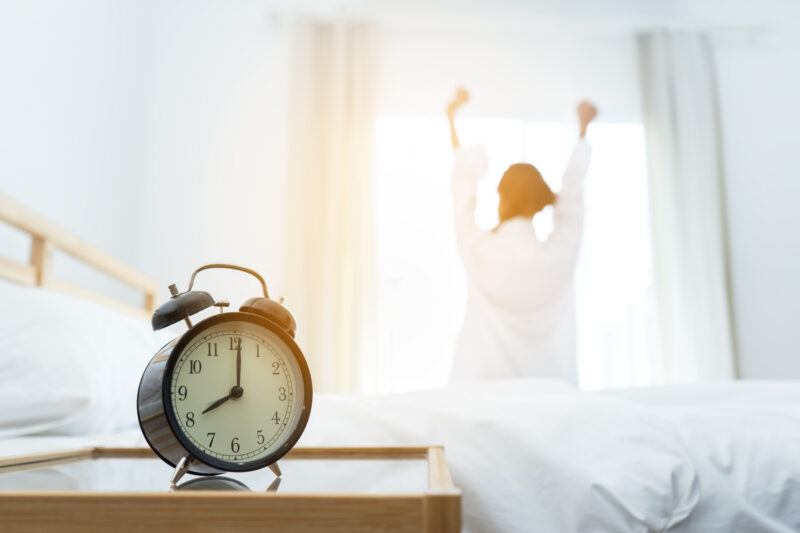Better sleep and well-being during remote semesters
SUMMARY: The COVID-19 pandemic and remote teaching, working and learning have resulted in a variety of sleep-related problems, as well as some favourable sleep-related outcomes.
In a qualitative study, we recently conducted focus groups and interviews with members of the Dawson community and analysed the positive and negative impacts of the COVID-19 remote teaching/working period (from March 2020) as well as the return to in-person teaching/working (from Fall 2021) on sleep and well-being.
Through group thematic coding, we categorised the responses from 22 Dawson faculty members and 21 Dawson non-teaching staff according to general sleep/well-being, anxiety/stress, commute, work and lifestyle.
We found that faculty members experienced slightly more negative sleep outcomes during the remote teaching/worked period as opposed to staff members. However, overall, both faculty and staff members experienced more negative sleep and well-being outcomes during the return to in person teaching/working as opposed to during the remote teaching/working period.
The highest number of participants commented on their well-being related to work, in almost evenly negative and positive ways for both the remote and in-person teaching/working formats. Overall, our study highlights the positive and negative impacts of both time periods on sleep and well-being. Statistical analyses show significantly overall better sleep and well-being for both faculty and non-teaching staff during the remote period compared to the return to in-person.
A comparison of faculty and non-teaching staff during the remote and the in-person periods is graphed (see links at bottom of article).
- As shown in the graphs below, not surprisingly there were exclusively positive impacts of commute on sleep during the remote period due to the lack of having to travel to work, and exclusively negative impacts with the return to in-person.
- More faculty members than non-teaching staff commented on the negative impacts of anxiety/stress as well as of work on their sleep and well-being for the remote period.
- Overall, there were more comments related to well-being as opposed to sleep experiences, with the highest number of participants commenting on positive well-being outcomes related to work during the return to in-person.
- However, overall there were more negative impacts on sleep and well-being as opposed to positive during the return to in-person work.
More details of the studies can be found here and here.



